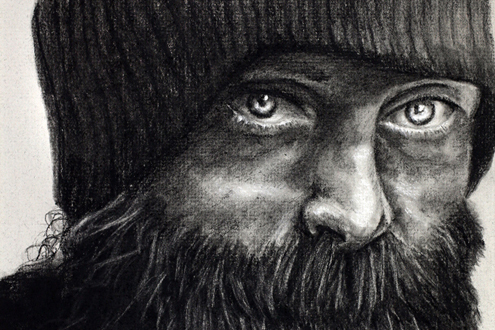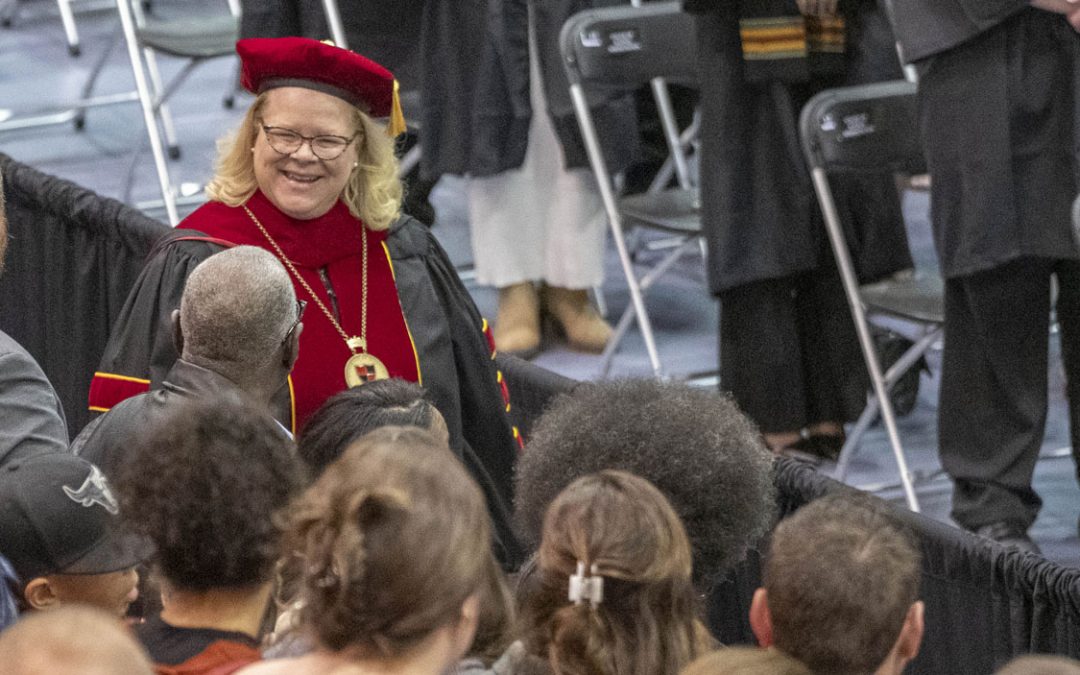
Isa Mulvihill of Mary Institute and St. Louis Country Day School in Ladue, Mo., created this work for the United Way of Greater St. Louis and the St. Louis Post-Dispatch’s 100 Neediest Cases. (Click on image to see full version)
Many people give generously to those in need during the holiday season and students in the School of Social Work at the University of Missouri–St. Louis School are no different.
Every fall semester, UMSL social work students participate in a unique, real-life learning opportunity by helping the United Way of Greater St. Louis in the allocation process for the United Way’s 100 Neediest Cases Program.
A combined 60 students from three classes read over hundreds of submissions, selecting the neediest. Cases involve parents who have recently lost jobs, leaving them with no income to buy Christmas gifts for their children; older adults with fixed incomes unable to pay medical and heating bills; individuals who have experienced illness or accident with little or no insurance. The list goes on.
Lindsay Meyer, a graduate social work student and teaching assistant, said working on this project has given her a new prospective on dealing with those in need.
“This assignment helped me consider the abstract client as an individual,” Meyer said. “The exercise was a significant event in my social work education.”
Her classmate Robert Haid agreed.
“It was very humbling to take part in this process and put my own experience of need into perspective,” said Haid, a social work graduate student, “It also made me acutely aware that there was not enough money available to help each of the families.”
The United Way’s Neediest Cases Program dates back to 1922, and partners with the St. Louis Post-Dispatch and over 70 local agencies to assist families in need during the holidays. The Post-Dispatch features 100 of the cases in its print and online publication during the holiday season, but thousands of individuals benefit from the annual program.
UMSL’s involvement began in 2006 when Vanessa Wayne, director of community investment at United Way, approached Patti Rosenthal, associate clinical professor of social work at UMSL, for assistance.
“The partnership with UMSL and the 100 Neediest Cases Program has helped to create a level of credibility and continuity,” Wayne said. “Having students that are being trained to work with individuals and families in need read the stories of people that could be their clients, give the allocation decisions so much more weight.”
This year, each student was given $15,000 to divide between 120 cases. Once allocated, the students write a reflection paper outlining their thoughts on the experience as well as the rationale used in determining which cases would receive only the minimum amount of money, around $80, or which received the maximum amount of $300.
“Although there is no correct formula for making the allocation, we ask students to make their decisions based on principles of good social work practice,” Rosenthal said. “We also want our students to enhance their self-awareness by identifying their own emotional triggers and develop strategies for not allowing those triggers to impact their allocation decisions – and what better experience than working with real cases.”














